Destroyer War Badge, by B. H. Mayer (in tombac)
CATEGORY: Version
SKU: 01.GTR.0906.101.01.000
Estimated market value:
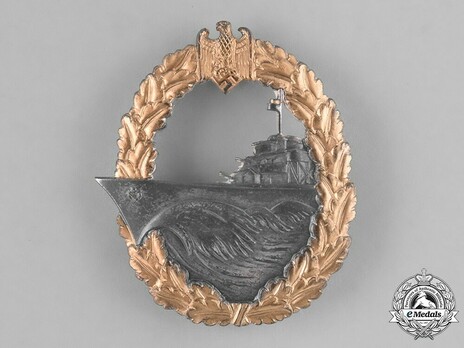
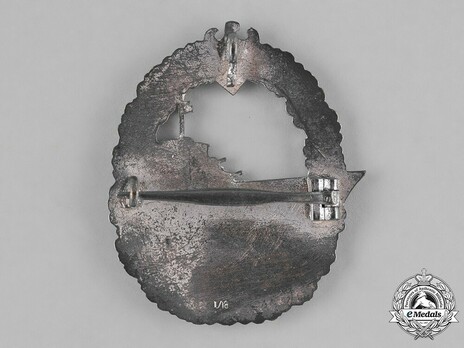
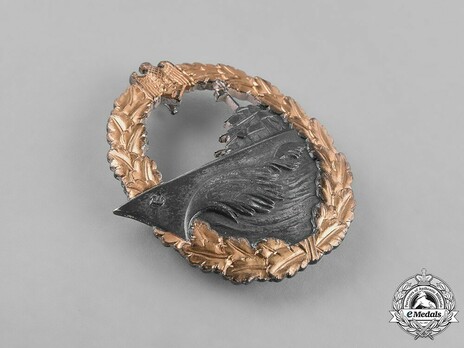
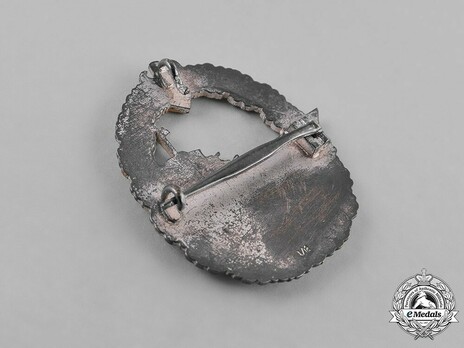
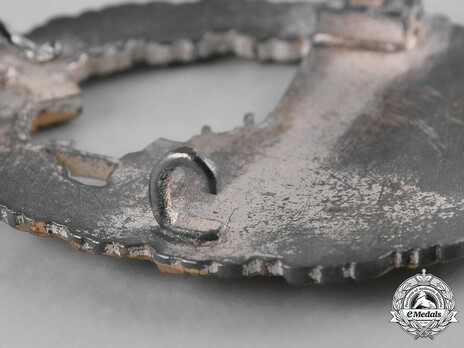
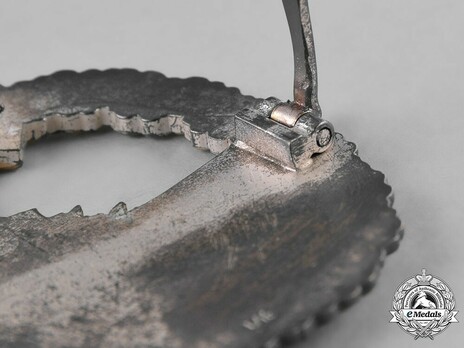
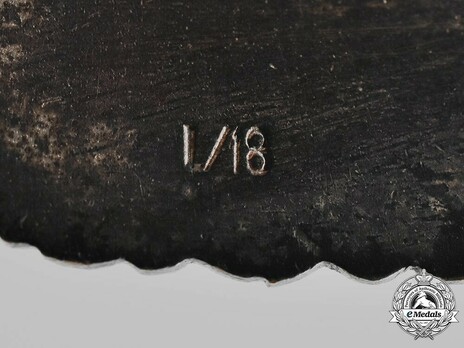
Estimated market value:
(Zerstörer-Kriegsabzeichen). Instituted on 4 June 1940. A badge constructed of tombak, oval-shaped, vertically oriented wreath woven from two upward pointing strands of oak leaves, a stylized destroyer sailing to the left at the wreath centre, the bow creates a large wave and the tip of the bow extends over the border of the wreath, the destroyer and the bow wave are silver plated, at the bottom of the wreath is a stylized ribbon binding the two strands of the wreath together, the top of the wreath is crowned by the national eagle, looking to the left and clutching a swastika in its talons, the eagle and wreath are gilded, the reverse presents a horizontal bottle-shaped pin with prone hinge, maker marked “L/18” for B.H. Mayer of Pforzheim, measures 45.97 mm (w) x 53.53 mm (h), weighs 26.3 g, and in extremely fine condition.
The Destroyer War Badge was instituted by Grand Admiral Erich Raeder on June 4, 1940, and was conferred in recognition of the service rendered by the crew members of destroyers, torpedo boats, and fast attack crafts. It was also meant to commemorate the lost men and ships of the Battle of Narvik, sunk by the British during the German conquering of Norway.
In order to be eligible for the award, an individual had to either participate in three engagements with enemy forces, or serve in twelve missions during which the enemy was not encountered. The badge could be awarded if a single engagement was very successful, or an individual had been wounded or had served on a ship that was sunk by the enemy. The badge was conferred upon all destroyer crews who participated in the Battle of Narvik.
The badge was designed by Paul Casberg in Berlin. The wreath and eagle is gilded, while the destroyer and the waves are silvered. Badges can have the hardware arranged vertically or horizontally.
Badges by Mayer are marked with the company’s LDO number, L/18. It is possible that the company also produced unmarked badges. Badges are made of tombac or zinc.
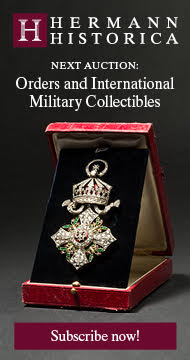
Comments
Sign in to comment and reply.
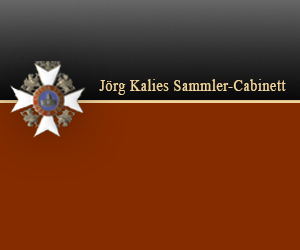

Scroll Top